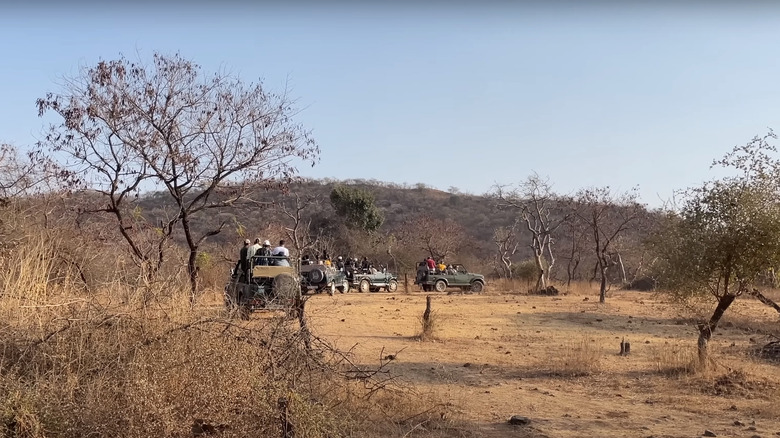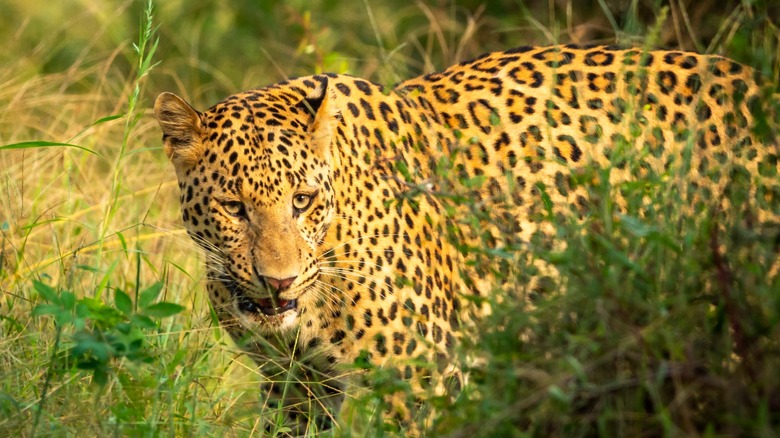Animals you might encounter along the way
When you’re planning to visit India and enjoy time at Gir Forest National Park, you’ll find it’s conveniently located just about 40 miles from Junagarh and less than 25 miles from the Veraval railway station. Travelers will want to note that mid-June through mid-October constitutes the rainy season in this area, and the park is closed to visitors in the name of safety. You’ll want to be sure to book your trip for sometime between November and March for optimal weather and wildlife-watching options. The park is also open to the public between April and May, but do be advised that temperatures are on a steep rise that time of year.
Gir Forest National Park first opened as a sanctuary in 1965 and became a designated national park in India in 1975. At that time, there were estimated to be fewer than 200 Asiatic lions remaining on the premises. Today, park staff, conservation specialists, and visitors are thrilled by the progress in numbers that have been documented across the park.
While the lions are undeniably fascinating for visitors to witness, Gir Forest National Park is home to over 40 mammal species and 400 bird species. Touring the grounds on a guided safari could put you within reach of everything from crocodiles and antelopes to leopards, pythons, and more. Hyenas, jackals, foxes, and deer are also known to roam the national park sanctuary grounds.
Viewing opportunities

YouTube/Tales of Odyssey
The most comprehensive route to seeing all of the wildlife that roam throughout Gir Forest National Park is to book a jungle safari through the park’s official channels. These safari adventures are led by dedicated and knowledgeable park staff and are offered Monday through Sunday when the park is open. It’s important to book your place as early as possible because wildlife viewing permits are required for these safaris.
If, for any reason, you happen to miss out on a spot on an official safari, you can still make the most of amazing lion encounters at Devalia Safari Park. This is a designated section of the sanctuary where you’ll set your sights on Asiatic lions in a more controlled environment. Thirty-minute bus tours of the Devalia Safari Park can be booked during your visit for a comprehensive look at the grounds and wildlife, though it’s important to note that the park closes on Wednesdays.
There’s also a nearby Interpretation Zone for visitors to explore, referred to simply as Devalia. This small, fenced-in space hosts a unique cross-section of wildlife and wilderness made up of dry deciduous forests to admire. When you make your way in this direction, you’ll likely see wildlife ranging from lions and leopards to mongooses and blackbucks.

